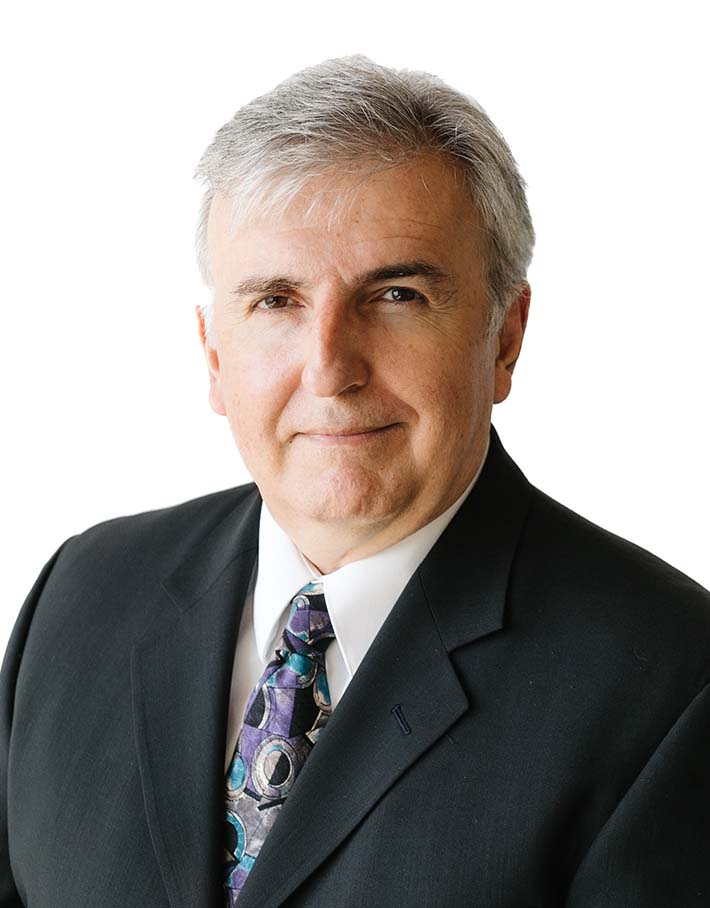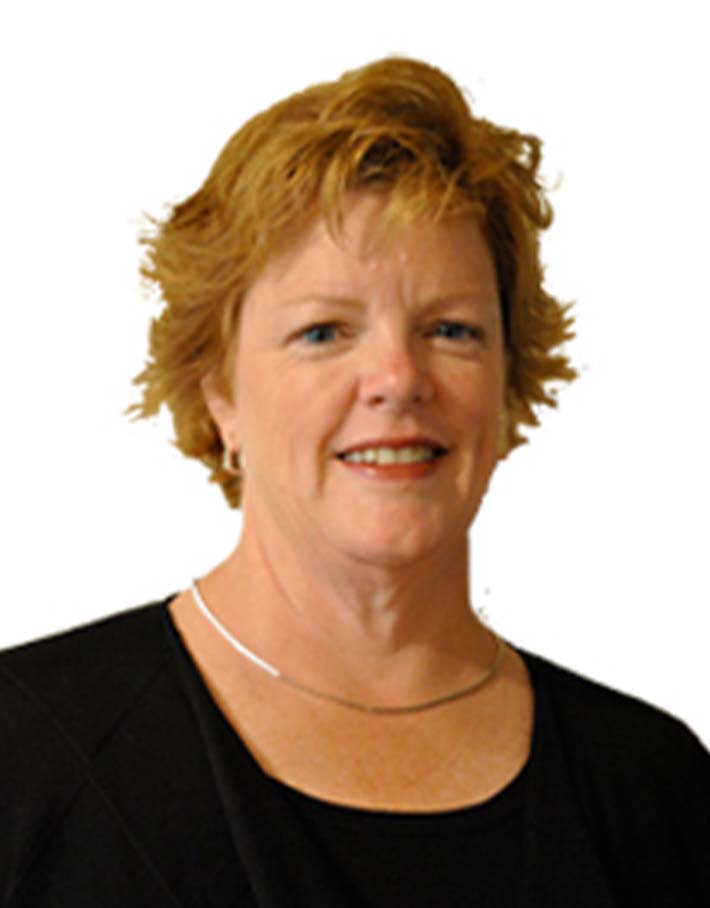When Does Outsourcing Your CCO Role Make Sense?
By Dean Pelos and Molly Bryson
Subscribe to our original industry insights
Whether you have an established business, are starting your firm or just need an outside perspective to see what’s working in your Compliance program and what isn’t, outsourcing the Chief Compliance Officer role is an important decision. In this episode of the Oyster Stew podcast, our experts discusses why the decision to outsource your Chief Compliance Officer role is an important decision and things you should consider, including resource availability, experience, and interaction with regulators.
Explore Your Options: Outsourced CCO
Outsourced CCO professionals provide the unique benefit of getting a multi-disciplined professional without having to interview, negotiate, hire, onboard and maintain another employee. Oyster Consulting provides an outsourced professional who is right-sized for your organization – no more having to wonder if your candidates are qualified to meet the daily challenges of regulatory compliance for your firm. At Oyster, our outsourced CCOs provide superior capabilities for RIA and Broker-Dealer compliance backed by an entire company of industry professionals.
Transcript
Transcript provided by TEMI
Hello everyone. I’m Molly Bryson, one of Oyster Consulting’s Relationship Managers and the host of today’s podcast. Our topic today is the contemplation of the benefits of outsourcing the Chief Compliance Officer position for broker-dealers and registered investment advisors. Oyster’s consultants have served as Chief Compliance Officers for broker-dealers and registered investment advisors of all shapes and sizes. Today we’ll be discussing some of the important points firms may want to take into consideration when making this decision. So Nikki, let me ask you, what would you say are some of the common mistakes that some of the inexperienced Chief Compliance Officers out there might make?
Nikki Brinkerhoff: In my experience and interactions with folks that don’t have a lot of experience in these roles, they have a tendency to procrastinate making decisions, overthink, over-analyze, almost become stagnant or have paralysis because they don’t know the right answer. They don’t know which way to go, so they will delay and not act or support the business as they should.
Molly Bryson
How about you Dean? What are some of the things you’ve come across?
Dean Pelos:
Yeah, I would agree with a lot of the things that Nikki said, but in addition, I think that there’s a lot of things that, from a resource issue, it really depends on the size of your firm, on some of the budgetary constraints that you might have where, I might be the CEO and the CCO. So I’m running my company and I have an issue with running my business. And the business side of things might take over and the procrastination begins on the compliance side of things where there’s not as much thought going into it, or using the proper resources that might not be available to you to be able to make the right compliance choices to create a culture of compliance within your organization. So those are things that I think kind of get overlooked and causes some CCOs to be inexperienced from that standpoint. I also believe that not keeping up with the rules of the business and what regulators expect of you or other things that also could be of concern.
Nikki B. : So Dean, you bring up some really good points there, and it makes me think about some other items that you can run into. A lot of time in smaller or mid-sized, there’s not enough resources to go around. So now you have somebody doing operations and compliance, or strategic leadership and compliance, and compliance becomes an afterthought. That or hot potato, yes, and that may not just be inexperience. That may be lack of resources. You don’t have enough time to dedicate to it to keep up on the rules or to know how to make the decision, and that causes the firm itself to actually have inefficiencies and run at a lag.
Molly Bryson: So firms are considering outsourcing their Chief Compliance Officer role, and usually that comes from either the president or the CEO of a company. And oftentimes, we hear from folks who are actually in that role and also trying to take on the role of CCO at the same time. What are the risks associated with that?
Dean Pelos: So it’s primarily the intermediate firms, mid-sized firms, the smaller firms, that maybe don’t have the resources necessary to be able to carry out both roles, because what they’re trying to do is they’re trying to grow their business, They’re thinking about reaching out to their clients, they’re thinking about trying, performance-wise, to be there for their client, making sure that whatever the business is, that the business is performing exceptionally well. So their clients are satisfied and they’re not focusing and worried about the regulatory issues that may be involved with making sure that their compliance program is properly supervised, whether or not they’re thinking about conflicts, appropriate conflicts, disclosing those clients, conflicts to their clients so they’re fully aware of things that are happening between what one part of your business might be versus another. So, those are things that they don’t think about and to me, being able to be an outsourced CCO, being able to be aware of those issues because of my experience, being able to then assist the CEO with allowing them to grow their business and worrying about compliance in general – just compliance and supervision and risk – those are the things that I always think about. When you’re the CEO of a company, you’re thinking about how the business is developing, first and foremost in your mind.
Molly Bryson: We talked a little bit about being the Chief Compliance Officer in addition to taking on the CEO role. Doesn’t that really apply to really anyone in a firm who’s handling dual roles and also trying to run the compliance program?
Dean Pelos: The reason all of this occurs is because there are things that, if you’re a CEO of your company, you’re trying to grow your business. You’re trying to perform to your client’s expectations. You’re trying to make sure that you are looking at investment objectives of your client and you want to make sure that you have proper suitability in the investments you’re making for your clients. You have that fiduciary duty that’s taking place. But you’re not thinking about some of the compliance aspects that a Compliance Officer might be thinking about. You’re not maybe in tune with new regulations that come on the table. We can look at Reg BI as an example. That’s a huge risk right now that’s coming up because a lot of people don’t even understand what Reg BI is. They’re not going to read 400 pages of material that the SEC put together and try to interpret what they can and cannot have, to be able to properly comply with Reg BI. So to me, those are things that are potentially risks. There are new exam priorities that come out every year. Maybe the CEO is really not focused on those types of priorities and is not going to adapt their compliance program to properly supervise a risk that’s out there that they’re not even aware of. Those are things that happen all the time and those are things that we can help with because we’re experienced enough, and we’ve been doing this enough to be able to identify those things and be able to communicate that to our client.
Molly Bryson: So Nikki , do you have some thoughts as well?
Nikki B. : Well, one of the really unique and interesting things about an outsource model is it allows you to tap into some knowledge, resources and experience that a mid-size or smaller firm may not be able to afford. It also allows you to have perspective of what other people are doing in the industry, how things are changing, different exposure and a lot of those insights you can’t get from a conference or from training. You, as Dean said, get it from somebody that comes with a bunch of experience. Clients in this space really have a consideration about bang for the buck. How can I get somebody that can support my operation, my growth and myself, and protect the firm? And that’s what compliance ultimately does – protect the investors, protect the firm. It has to be baked into the operation. It has to help you be more efficient, because you don’t have the unlimited resources in an oversight role or a compliance role.
Molly Bryson: Is there a certain size of firm where this makes more sense rather than not so much? Or is it based on size of firm or lines of business? Would you say, Nikki?
Nikki B. : I think lines of business and complexity in the delivery of their services. If they have a lot of diverse, complex, different items, it makes it harder to get one person that has all that knowledge, especially if you have a limited staff. Conversely, you could have a enormous firm with a very great repeatable process, and it still fits in an outsourcing model because you don’t have the time constraints required in that repeatable process.
Molly Bryson: What are some of the ways in which we’ve worked with firms where we haven’t necessarily had the title, and what are the risks involved with that, if any? Nikki, you want to take that first?
Nikki B. : Sure. I think first and foremost, getting somebody, a partner, a firm that doesn’t appreciate what your firm needs or have the ability to support your firm. So picking the right partner makes a huge difference for the firm. And if they’re new to this kind of model, if they haven’t had a lot of experience or they’re aware of somebody else that had a bad experience, keeping the title, being more controlling of it is very important to them. I agree with them wholeheartedly. Finding the right partner, building the trust. It truly is an ongoing relationship. It’s not a “one month you can do it one month you can’t,” because it’s an ongoing, learn your business, know it, help it grow and support it. So I think that’s the biggest fear. Dean, do you see others? And that’s a good point. From Dean’s side and from mine. You have to have the trust, you have to be part of the executive team. They have to value you, you have to value them. There’s got to be communication. So not all firms can do that.
Firms have to really look at their culture. Their ability to have an Outsource CCO compliance support may be a great solution for them. If what their CCO needs is the experience, the knowledge, the person that keeps up on the rules and can help them implement it. In reality, if you look at what the regulators ask for, it is integrated compliance with your service and product delivery and the only way you do that is by having your compliance controls involved and a CCO that’s engaged – and you can get that. I think it’s very interesting for folks who decide to take the risk and start their own firm so they know what they’re good at, they know what their business model should be, they know what their goals are and what their objectives are. What they don’t know is how to do it in a compliant fashion, how to make themselves more efficient and more effective, and that is a really great fit for at least me and Dean, and some of our folks around here, because we’ve done it over and over again.
Molly Bryson: So Nikki, you mentioned people starting their own firms. What would you say are some of the advantages to having an Outsourced CCO in place as you launch your firm?
Nikki B. : So when you start a firm, there’s all these things you have to do and comply with and ensure you can demonstrate compliance, but that you’ve now tapped into people that have done it multiple times, have learned and grown over the time with the industry, bring such valuable benefit to somebody launching their new firm, and being able to hit the ground running and focus really on business development. Because we have stepped in either in an interim case or when new products come out – let’s talk about robo advising or let’s talk about cryptocurrency, or let’s talk about any of the new complex products. As we step in and work with multiple firms, we have a basic ability to get information of how that product works or how the industry is working at a much quicker speed. That is something you’re not going to get at a conference or in training because you can actually sit down and discuss how the other side works. So you make sure your side picks up all the compliance parts. It also helps the business development because now you have a compliance officer or compliance support person that actually can get you the details of how that product works operationally. So it’s a multi-layered type of benefit to go to some sort of outsourcing model.
Molly Bryson: And in that scenario makes it easier for your CCO to be able to support your business instead of saying, no. It might not be a no, but it’ll be, “Here’s a way we can do it,” instead of maybe going down that path.
Nikki B. : And being able to say, “I’ve done the research, I’ve gotten comfortable. We can have controls put in place without delaying the ability to make some business decisions.” You know, one of the things that makes an outsourcing model so much more beneficial to firms – you don’t have a key man type of risk that your CCO could jump ship or change jobs, because you now have a deep bench of resources at Oyster. We all work together and if something was to happen to one of us, there’s a deep bench that any company can pull from, and there’s never going to be a time that you would be overburdened or overwhelmed, regardless, because you have so many resources at your disposal.
Molly Bryson: So understanding that it would allow me to focus on my business and understanding that I, as a business owner or a business associate, may not be able to keep up with the ongoing changes in the industry and the compliance requirements, is there any risk to me as a firm and outsourcing these roles, that it should be taken into consideration? Because I can see the benefits – that makes sense. But if I’m a business owner, I’m going to say, “But what are the risks? What am I losing control of?”
Nikki B. : I don’t know that you lose control. If you do your due diligence and you pick the right partner that fits your business and the culture of your firm, I don’t see an increase in risk or a change in risk. Yes, you shift some risk around and you actually get more people in your boat per se, to share the risk with, but you don’t have an increase or a change to your risk profile.
Molly Bryson: So a lot of times when clients are talking with me on the business development side, I think one of the things they worry about is, what happens if one of our consultants is the CCO for too many firms? How do you all maintain your ability to focus on the firms that you are holding the title for?
Nikki B. : Well, I think we do a good job and again, it comes back to what I said earlier about finding the right partner that fits your business and can dedicate the time to be part of the executive team and support the strategy of your business. But we do a very good job of limiting that. We also have personal liability, so we don’t want to take on more than we can handle and we don’t want to do a disservice to any client or to ourselves. That’s a personal accountability and responsibility we have. What do you think Dean?
Dean Pelos: No, I agree with everything you said in terms of the risk that’s involved in operating as a CCO for a firm. There’s a personal stake here in each of us as individuals to understand what’s happening and what kind of capacity we have to be able to accommodate and help that firm succeed from a compliance standpoint and a supervisory standpoint.
Molly Bryson: So people who are in the Chief Compliance Officer role within their firm at times may just have limited time or industry knowledge. How can we, as a consulting firm, help that CCO navigate those waters? Or would it be better for them to consider outsourcing the role?
Dean Pelos: So, primarily, it really depends on what your resources are, what you may have, what you may not have. What’s your company size? Are you limited in what compliance is to your company? From my perspective, sure you can. You can continue to assume the role of CCO for your company, but you know, if you want to continue to have that role as CCO, we also offer a lot of compliance support functions that would be assisting the CCO at that company. Let’s say there’s an issue that comes up where they’re confused about how we can assist with that. If a CCO has an issue and they want to pick up the phone and call and say, “Listen, I’m a little confused about this regulatory issue that just came up. Does that apply to our business or does it not apply to is? Is there something that we need to do? Do we need to change our policies and procedures? Do we need to change our controls around how we supervise this particular thing?” We can understand what your business is. We can then provide or solutions for you to assist with your compliance program. And that’s compliance support in a nutshell.
Molly Bryson: So if you wanted to retain the Chief Compliance Officer title within your firm, which many firms do simply for the fact that they rather have ownership of that title, you’re saying Oyster can help in various capacities, anywhere from responding to a phone call every now and then, all the way up to helping them run their entire program.
Dean Pelos: Right, right. And we’ve done that many, many times. I’ve got plenty of clients who have called me, and they’ll call me as needed. They’ll reach out to me via email and they’ll say, “Dean, I need your help with something. Can you assist with this issue that I’m having?” And I’ll be able to, based on my 20-plus years experience in the business. I’ll be able to respond to my client in a fashion, which would assist them with whatever the issue is that comes up.
Molly Bryson: So Dean, firms may be reluctant to let go of that Chief Compliance Officer title, but they do so in the sense that they understand exactly what we’ve referenced here today, which is that any one person can’t necessarily do that role and other tasks they may be responsible for within their own firm. So as you, as you outsource the Chief Compliance Officer role to Oyster, what are some of the efficiencies that we can offer our clients so that they will know where we’re working and what we’re working on, and how can we create that environment for them?
Dean Pelos: We can use plenty of tools that are available to us that we’ve used over the years. One of the things that we’ve recently developed is a product called Oyster Solutions to assist with developing compliance and supervisory programs, helping them with their workflows. For example, we would take your entire compliance program and we would load it into Oyster Solutions, and then be able to provide efficiencies by being able to monitor when we need to perform certain compliance tasks. Those workflows would be developed within Solutions. So we would take, for example, your policies and procedures. We would load those policies and procedures within Oyster Solutions and then be able to put controls and workflows around those processes that you have, in order to be able to better monitor the program from a supervisory aspect, from a compliance aspect. If there is a rule change that takes place and it affects your business based upon how we’ve identified your business, that rule change would be incorporated within Oyster Solutions and it would updated as needed, as necessary, so that you’re fully compliant with any regulatory order that is taking place, whether you’re an investment advisor or a broker-dealer.
Molly Bryson: So that sounds like that would certainly make things easier when a regulator comes to visit. It sounds like things w ill be contained in one place. Is that right?
Dean Pelos: Yeah, it would be contained within one place and it would be a lot easier to retrieve that information for a regulator when requested.
Molly Bryson: And I would say one of the things that I hear on the business development side about people’s concerns around acting as the CCO is that they don’t have regular interaction with the regulators, so they are unsure of what to say or how they should be interacting with them. What are the advantages that some experienced CCOs could bring to that concern?
Dean Pelos: One thing we do have in Oyster – we’re practitioners here. We’ve been doing this for, many of us have been doing this for 20-plus years. So we’ve run our own businesses. We’ve run our own broker-dealers, our own investment advisors. We’ve worked at the SEC or at FINRA. I’ve been dealing with regulators for the last 30 years, whether it’s the SEC or FINRA or whoever, whether it’s a state regulator. We’ve had the opportunity to sit down with these individuals and run through audits, run through requests. We have that experience in interacting with those regulators. An example would be coordinating effectively with regulators by being responsive, by finding solutions to satisfy requests effectively, knowing what to say or not to say in certain instances when you’re being requested of an item or you’re asked a question and how you respond to a regulator in response to those requests or demands.
Molly Bryson: So at the end of the day, the regulators really care about the health of the firm, and then of course, in turn, the health of the client’s relationship and business. And so as long as you’ve got the right resource in place, whether they be an outsource resource or a permanent resource, the regulators are happy. We never really say what a regulator does or doesn’t think. But I know for a fact that our teams have been through multiple exams over the past several years, and from those exams, we share information about what the regulators are asking for. We share information about our approach to exams and how we were successful. Anything else either of you think should be mentioned as a consideration to a firm when they’re thinking about outsourcing this role?
Nikki B. : Personally, I think it has to be the firm’s ability to embrace and grow and develop with somebody with a whole lot of experience. And knowledge. Sometimes firms get in a rut or in their own way, basically because they’ve always done it this way and they want a CCO to come in and do it the way they’ve always done it. And really that’s not the best way or most efficient way. So they have to ask themselves if they’re ready to grow and develop their compliance program.
Molly Bryson: Well, it looks like we’re out of time. So Nikki and Dean, thank you very much for your thoughts and your comments. Whether you’re acting in multiple roles for your organization or you’re looking for compliance support, or even starting your own firm, we hope you found Nikki and Dean’s insights about when it makes sense to outsource your CCO role helpful. Some highlights from our discussion today: Here’s some things to keep in mind when you’re making this decision. Consider your resource availability. Consider the advantages of having a compliance professional who knows how to interact with regulators, and consider a compliance professional who has the knowledge to help you stay ahead of new regulations and who can worry about risk and supervision, so you and your team can concentrate on running your business. If you have any questions about what we’ve discussed today, or if you have a topic you’d like us to discuss in a future Oyster Stew podcast, please feel free to call us at (804) 965-5400 or you can visit us on our website at www.oysterllc.com.





